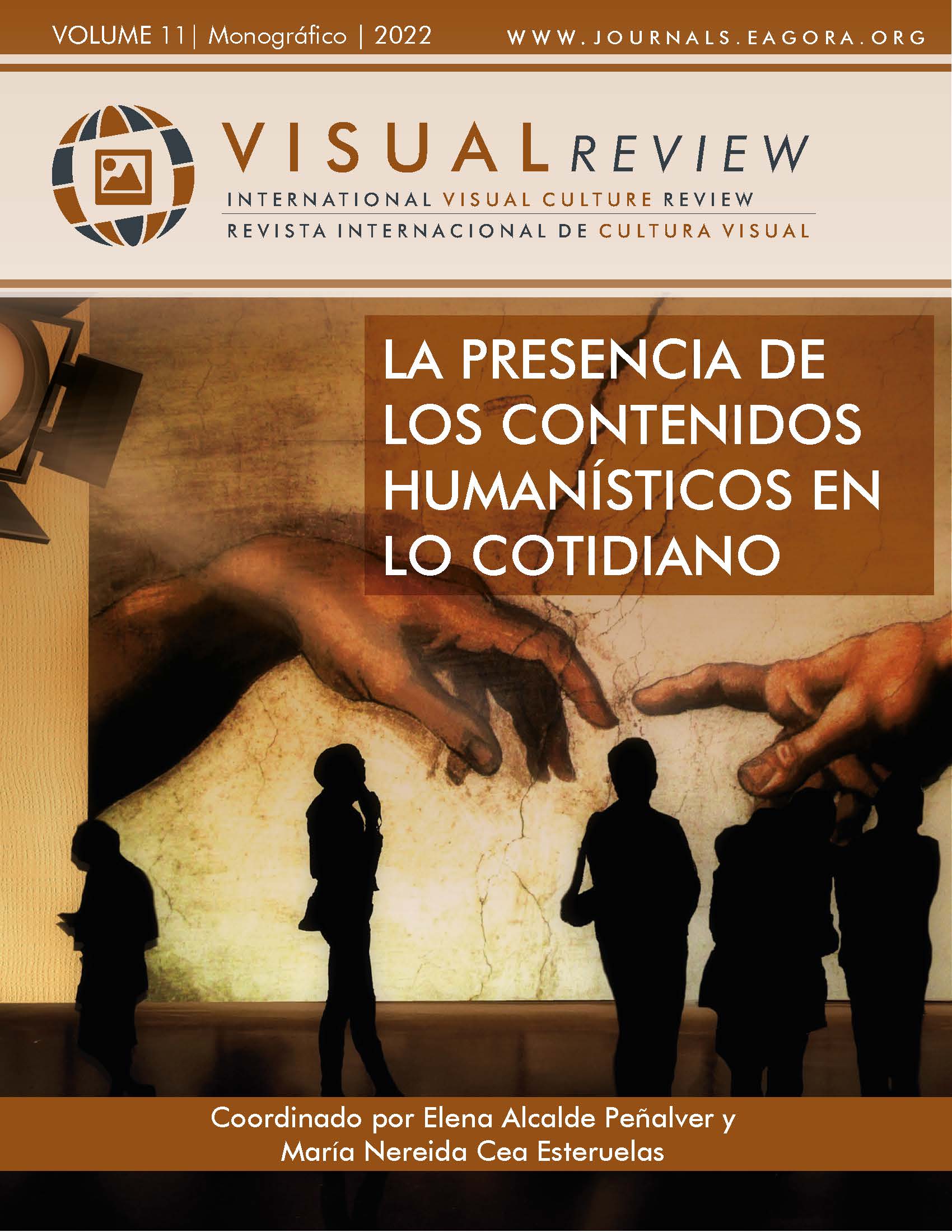Music and SDGs for educational improvement, entrepreneurship and inclusion
DOI:
https://doi.org/10.37467/revvisual.v9.3667Keywords:
SDG, Art Education, Musical Training, Cooperative learning, Musical genres, Entrepreneurship, InclusionAbstract
The main objective of this work was to propose a training and employability program, from art, in order to facilitate social, educational and employability inclusion in a neighborhood. The secondary objectives were to know the real human profile of a certain neighborhood in the city of Castellón. Assess the social and educational situation of the neighborhood. Assess the artistic and entrepreneurial level of the neighborhood and its interest. Connect the Sustainable Development Goal (SDG) 4 (Education). The methodology, of a mixed quantitative and qualitative nature, used a questionnaire, two interviews and a brief theoretical review.
Downloads
Global Statistics ℹ️
|
869
Views
|
468
Downloads
|
|
1337
Total
|
|
References
Best, Christine. (2022). Social Art for Social Inclusion under Special Conditions: Modification and Impact of a Theatre Approach for Promoting Employability, Entrepreneurship and Language Learning during the Pandemic. International Conference. The future education. https://bit.ly/3OAvMAC
Dávila Cabanillas, D. (2020). La música contra el bullying: una propuesta didáctica y educativa. [Trabajo Final de Máster, Universidad Jaume I] Repositorio Institucional de la Universidad Jaume I. https://bit.ly/3AhfSaj
García-Huidobro-Munita, Rosario y Montenegro-González, Catalina (2020). Las prácticas artísticas con enfoques feministas como experiencias educativas que promueven la transformación social. Revista Electrónica Educare, 24(1), 440-455. http://dx.doi.org/10.15359/ree.24-1.23 DOI: https://doi.org/10.15359/ree.24-1.23
Ferrada Sullivan, Jorge A. (2020). Educar en la vulnerabilidad: La educación estética como medio para la transformación social y cultural. ARTSEDUCA, (28), 100-109. https://doi.org/10.6035/Artseduca.2021.28.7 DOI: https://doi.org/10.6035/Artseduca.2021.28.7
Grant, Catherine, Bartleet, Brydie L., Barclay, Leah, Lamont, Joseph, & Sur, Sandy. (2021). Integrating music and sound into efforts to advance the sustainable development goals in the Asia-Pacific: case studies from Indonesia, Vanuatu and Australia. International Journal of Cultural Policy, 1-14. https://doi.org/10.1080/10286632.2021.1971206 DOI: https://doi.org/10.1080/10286632.2021.1971206
Infantino, Julieta (2019). Arte y Transformación social. El aporte de artistas (circenses) en el diseño de políticas culturales urbanas. Cuadernos del Centro de Estudios en Diseño y Comunicación. Ensayos, (71), 72-88. http://dx.doi.org/10.18682/cdc.vi71.1068. DOI: https://doi.org/10.18682/cdc.vi71.1068
PRISMA (2021). Transparent reporting of systematic reviews and meta-analyses. http://www.prisma-statement.org/PRISMAStatement/
Spiegel, J. B., Ortiz Choukroun, B., Campana, A., Boydell, K. M., Breilh, J., & Yassi, A. (2019). Social transformation, collective health and community-based arts:‘Buen Vivir’and Ecuador’s social circus programme. Global Public Health, 14(6-7), 899-922. https://doi.org/10.1080/17441692.2018.1504102 DOI: https://doi.org/10.1080/17441692.2018.1504102
Tenorio González, M.P. (2016) El flamenco en la educación. Cuadernos de Pedagogía, 471. Wolters Kluwer. https://bit.ly/3I2e7zB
Tettey, Tiija R. (2019). Music education as a means to enhance the perceived sense of social inclusion and to empower the young through increased employment in Eastern Uganda. Journal of Social Inclusion, 10(1). https://josi.org.au/articles/163/galley/148/download/ DOI: https://doi.org/10.36251/josi.163
Torres, H. M. L., Roja, E. A. C., Domínguez, H. Y., & Aldama, H. L. (2019). Motivations of adolescents and the musical genre reggaeton. Medimay, 26(1), 41-53. https://bit.ly/3I2ecmT
Valdés, Noemí A. (2019). Educación artística, transformación social y universidad. Prisma Social: revista de investigación social, (25), 316-331. https://dialnet.unirioja.es/descarga/articulo/6972154.pdf
Velasco Rodríguez, C. (2022). El flamenco y la intervención socioeducativa. MLS Educational Research, 6(1), 126-142.https://doi.org/10.29314/mlser.v6i1.683 DOI: https://doi.org/10.29314/mlser.v6i1.683
Vernia-Carrasco, A. M. (2019). Las músicas en la formación de los maestros y maestras en educación primaria ¿Puede la música concienciar en la diversidad de género? Dossiers feministes, 25, 43-56. https://raco.cat/index.php/DossiersFeministes/article/view/361533 DOI: https://doi.org/10.6035/Dossiers.2019.25.4
Vernia Carrasco, A. M. (2021a). Entrevista a Emily Achieng Akuno por Ana M. Vernia. ARTSEDUCA, (30), 93-96. https://doi.org/10.6035/artseduca.6137 DOI: https://doi.org/10.6035/artseduca.6137
Vernia-Carrasco, A. M. (2021b). INSOLARTE: Breve revisión de proyectos artísticos en una estancia de investigación. EARI Educación Artística Revista de Investigación, 12. 172. https://dx.doi.org/10.7203/eari.12.19097 DOI: https://doi.org/10.7203/eari.12.19097
Vernia-Carrasco, Ana M. (2022). The benefits of artistic projects as a social and educational impact. Arts education, cultural interaction, social inclusion, sustainability, teachers. Proceedings of The 4th World Conference on Research in Teaching and Education. https://www.dpublication.com/proceeding/4th-worldte/#Table-of-Contents
Downloads
Published
How to Cite
Issue
Section
License
Those authors who publish in this journal accept the following terms:
-
Authors retain copyright.
-
Authors transfer to the journal the right of first publication. The journal also owns the publishing rights.
-
All published contents are governed by an Attribution-NoDerivatives 4.0 International License.
Access the informative version and legal text of the license. By virtue of this, third parties are allowed to use what is published as long as they mention the authorship of the work and the first publication in this journal. If you transform the material, you may not distribute the modified work. -
Authors may make other independent and additional contractual arrangements for non-exclusive distribution of the version of the article published in this journal (e.g., inclusion in an institutional repository or publication in a book) as long as they clearly indicate that the work was first published in this journal.
- Authors are allowed and recommended to publish their work on the Internet (for example on institutional and personal websites), following the publication of, and referencing the journal, as this could lead to constructive exchanges and a more extensive and quick circulation of published works (see The Effect of Open Access).














